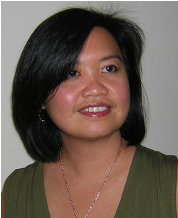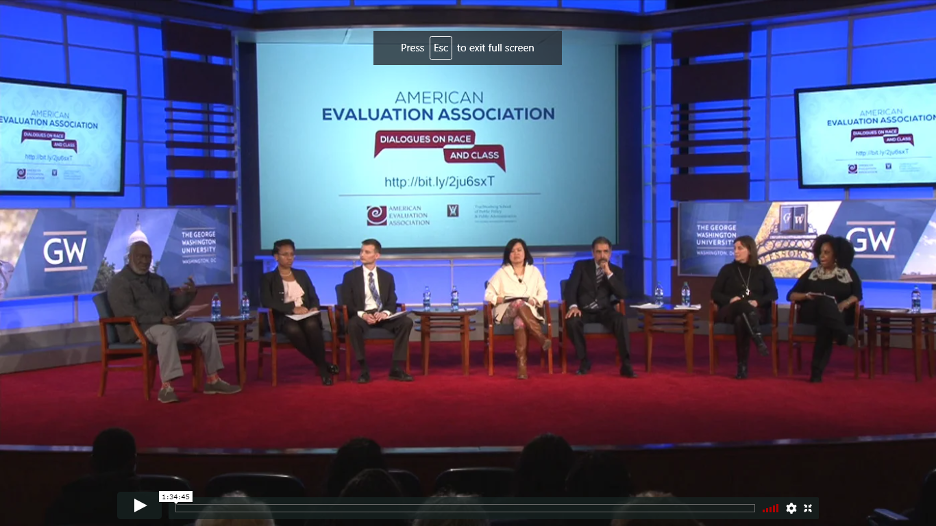This week, we celebrate Black History Month with our colleagues in the Multicultural Issues in Evaluation (MIE) TIG. The contributions this week are evergreen posts contributed by MIE TIG members about topics so important, they’re worth a second read.
-Liz DiLuzio, Lead Curator


Vidhya Shanker of Minneapolis here, with another attempt to repair the miseducation of evaluators regarding the contributions of women of color and indigenous women, particularly their understanding of systemic oppression, to evaluation’s history. Today I highlight Dr. Kien Lee, Principal Associate/Vice President of Community Science. Lee has advanced not just a structural analysis, but also a systems-oriented analysis of racial oppression.
With a PhD in Community Research & Practice and background in health and community psychology, Lee and her colleague Dr. David Chavis led the pivotal Building Diversity Initiative study, underwritten by the Kellogg Foundation, that Drs. Ricardo Millett and Donna Mertens initiated in 1998 when Mertens was AEA president. It resulted in 14 recommendations, six of which are now common AEA fixtures:
- a standing Diversity Committee of AEA
- the Graduate Education Diversity Internship
- the Minority Serving Institutions fellowship
- a Statement on Cultural Competence
- guaranteed professional development opportunities that address race/ethnicity at the annual conference, and
- incorporation of diversity issues into the review of the Program Evaluation Standards.
Importantly, the study’s most structural-level recommendations, which might have fundamentally transformed the field by building its understanding of power—and its role maintaining or shifting power— were never implemented. These involved developing: 1) a Council of Evaluation Training Programs to discuss issues of diversity and cultural competence as they relate to training and evaluation, 2) nontraditional training opportunities for people who do evaluation work but who do not identify as evaluators, 3) small business development training for evaluators of color to start consultancies, and 4) an affirmative hiring policy for foundations and government agencies.
In 2014, ten years after GEDI’s inception, while acknowledging the value of its cohort model as opposed to the study’s original recommendation to fund a single fellow, Lee and Dr. Brandi Gilbert named the limitations of programs focused on training individuals—especially at the lowest organizational levels (student interns)—that do not also address “the interconnected parts of the ecosystem,” namely, the institutional policies, practices, and norms that have been in place for generations, making programs like GEDI necessary in the first place. In 2017, Lee introduced power dynamics (at 15:40) into the first in a series of Dialogues on Race and Class—former AEA President Dr. Kathy Newcomer’s attempt to deepen members’ understanding of racialized inequality. Lee discussed evaluators’ responsibility to educate clients about the contextual implications of their programs, regardless of whether clients solicit that input, and raised questions about whether evaluators’ training equips us to do so.

Hot Tip:
To show members of groups excluded from evaluation’s canon that we have a lineage within evaluation, it is important that I acknowledge the personal, professional, and political kinship that I—as an Asian American woman actively challenging systemic oppression and building justice—feel with Kien Lee. “Asian culture,” especially Asian womanhood, is exoticized as complacent and submissive in white supremacy’s attempt to discredit demands for systemic change. Dr. Lee’s 20-year investment in a systemic analysis of oppression shatters this model minority narrative.
The American Evaluation Association is celebrating Multicultural Issues in Evaluation (MIE) TIG Week. The contributions all this week to aea365 come from our MIE TIG members. Do you have questions, concerns, kudos, or content to extend this aea365 contribution? Please add them in the comments section for this post on the aea365 webpage so that we may enrich our community of practice. Would you like to submit an aea365 Tip? Please send a note of interest to aea365@eval.org. aea365 is sponsored by the American Evaluation Association and provides a Tip-a-Day by and for evaluators.
